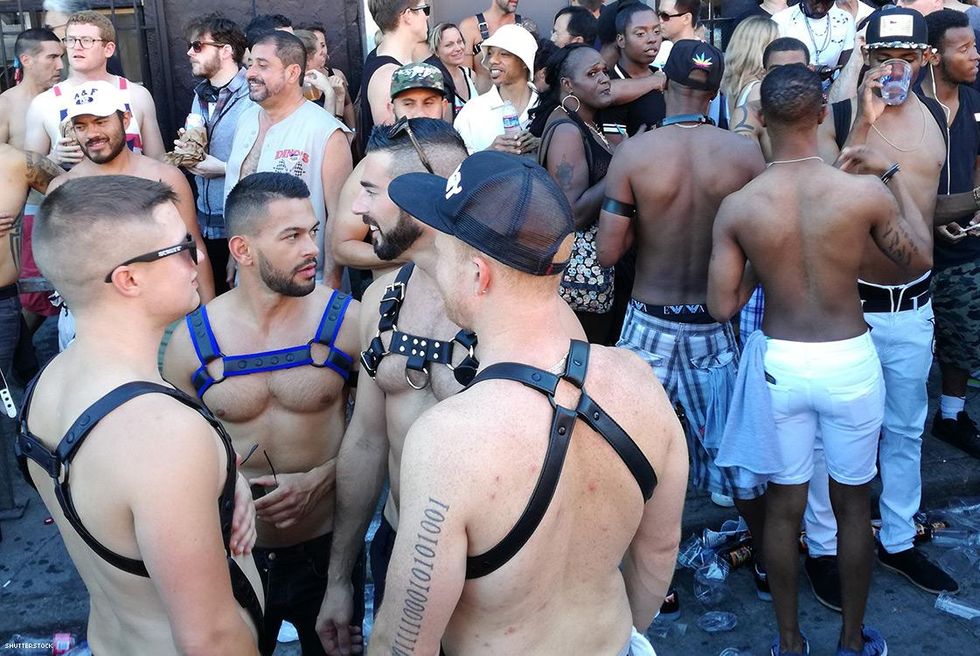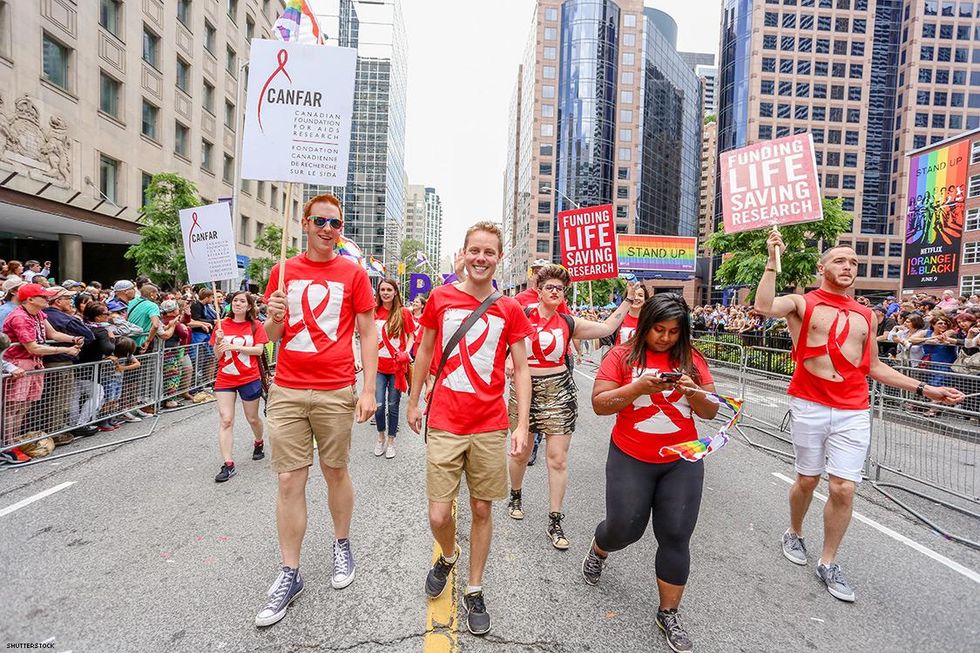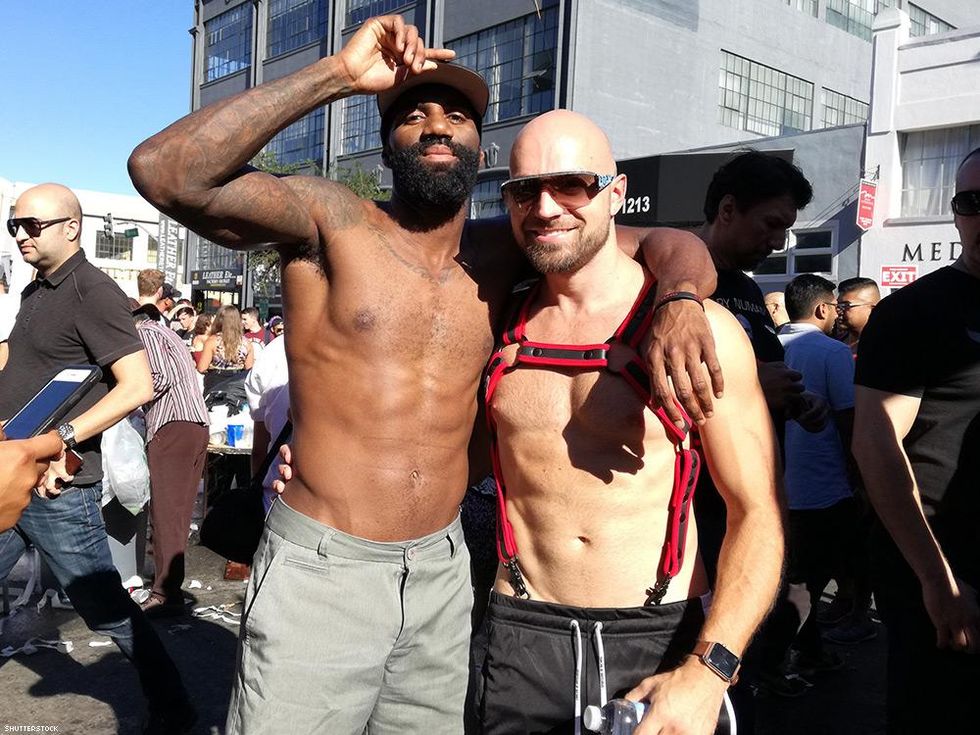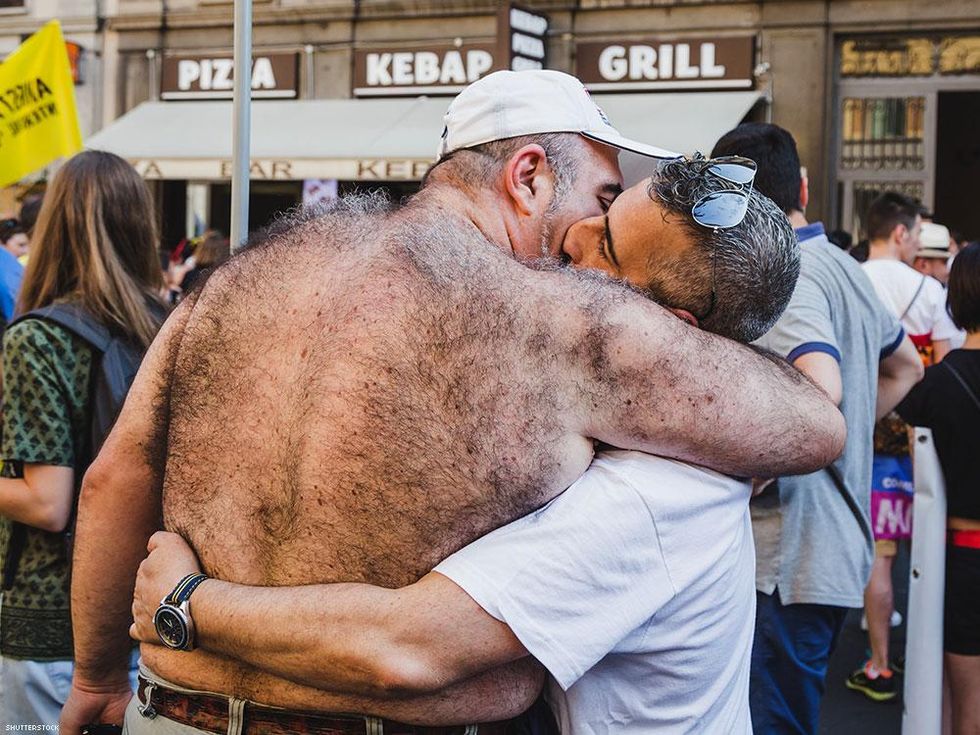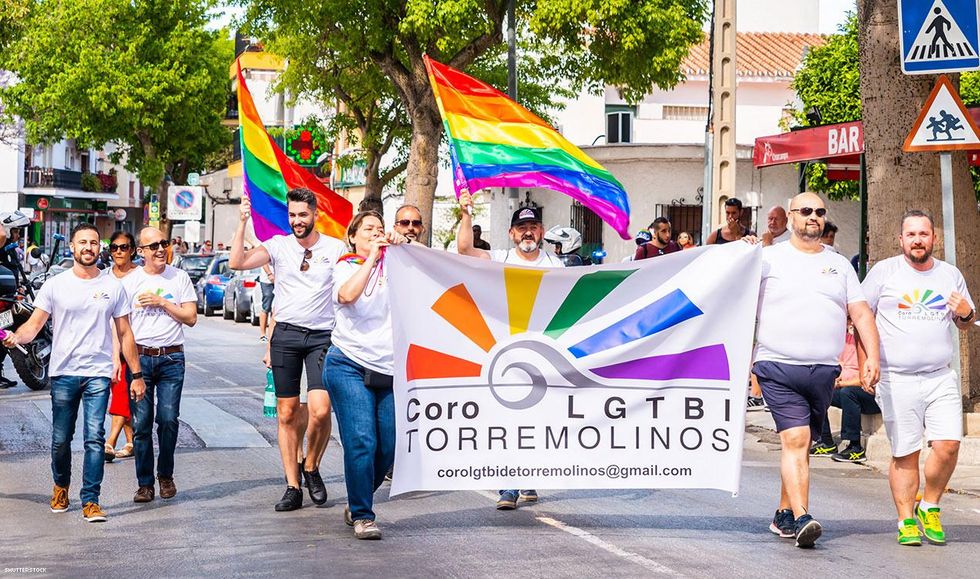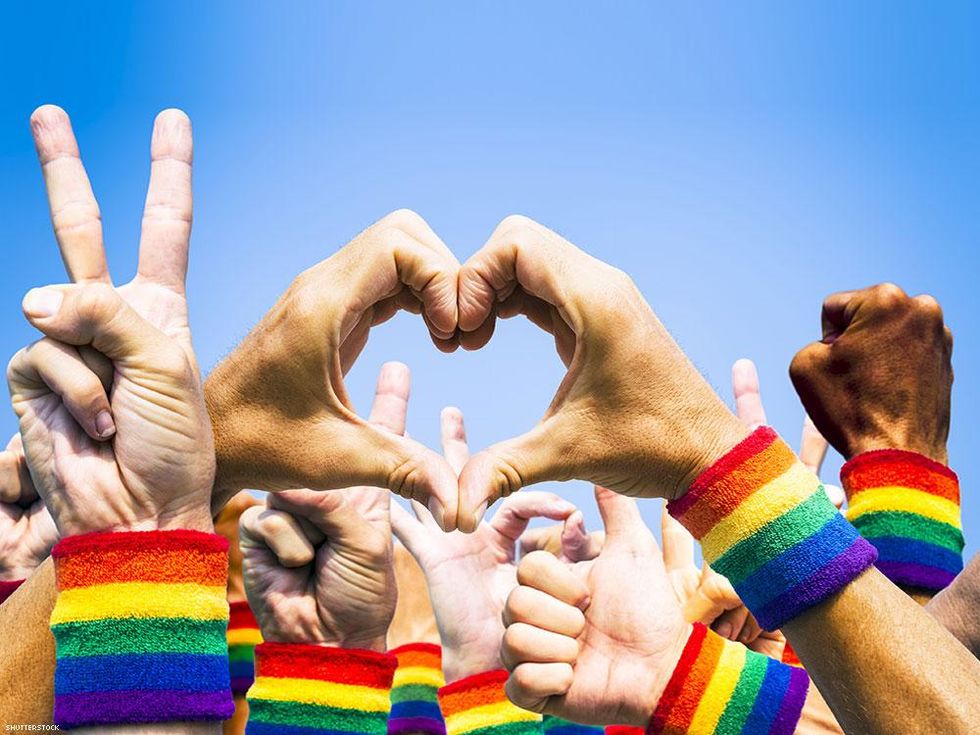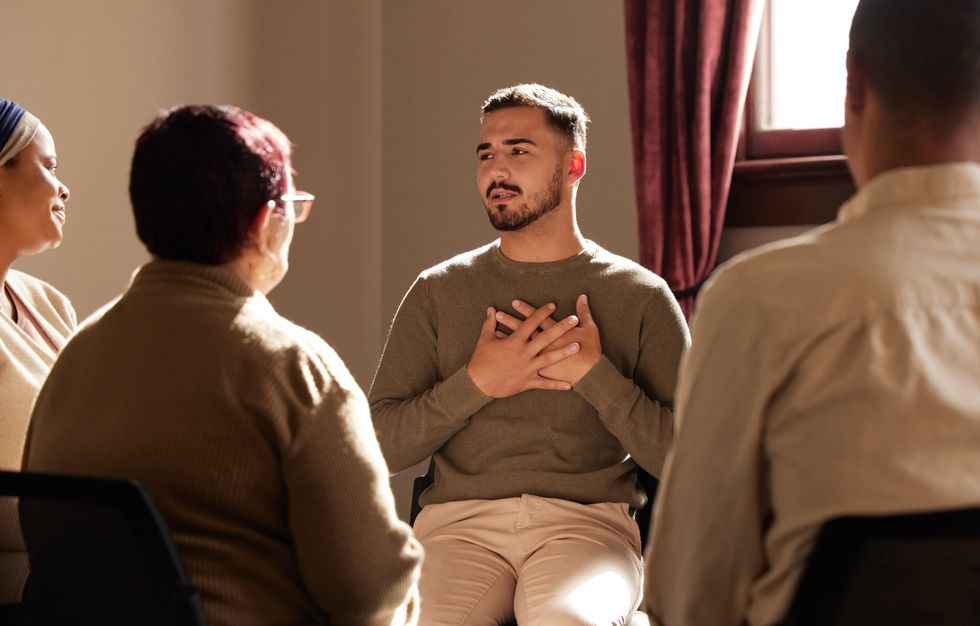You know my pronouns, now please do your best to use them.
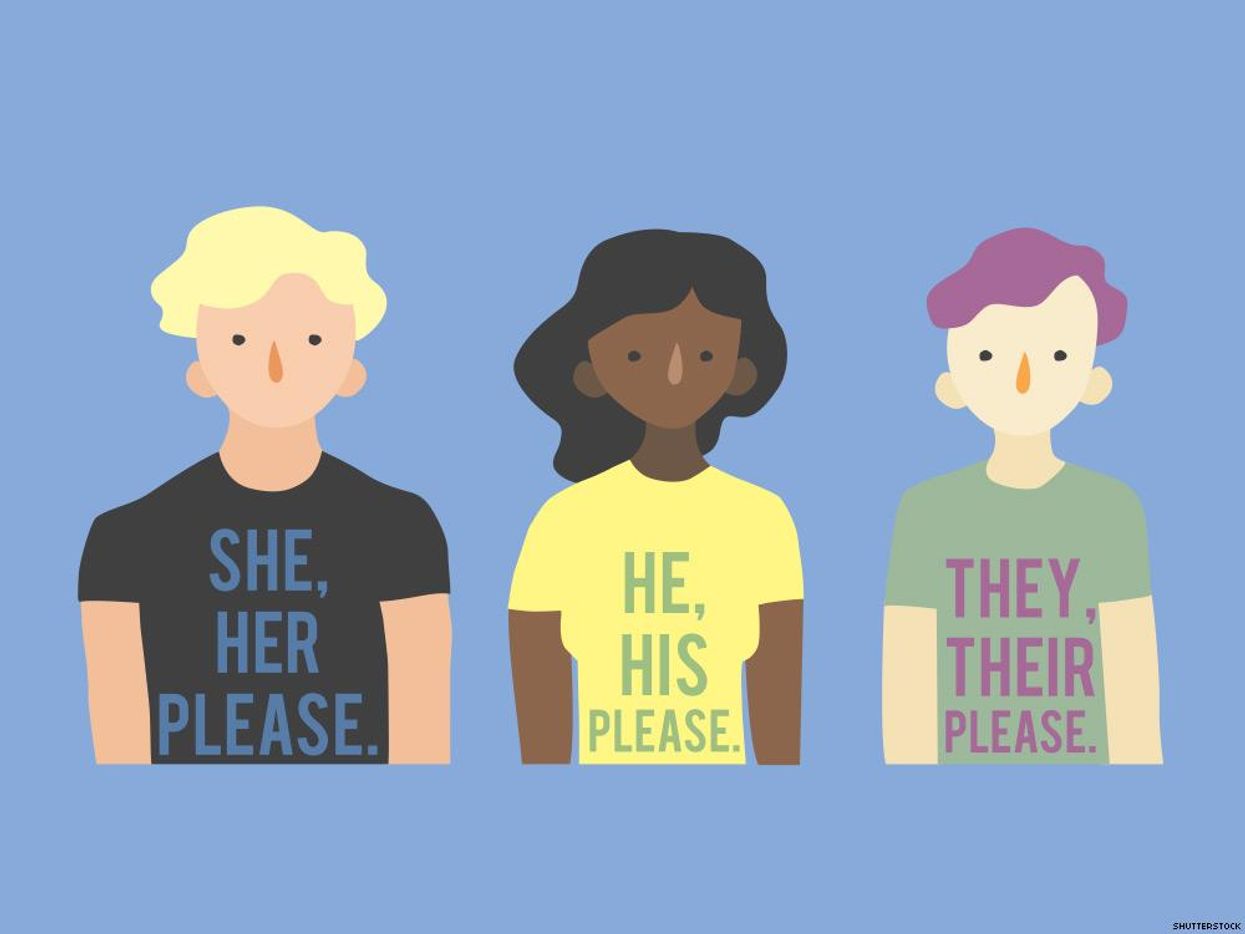
Nonbinary and gender fluid identities have existed since humans have. But for some reason, the growing act to have pronouns fit our beyond the binary-ness is a difficult concept for so many. If you're anything like me, you're tired of hearing "well-meaning" naysayers give their unsolicited opinions on your pronouns. Here are some of the most common offenders, and why they need to stop.
"Using 'they' for one person doesn’t make sense."

The biggest argument people make about they/them pronouns is that, when used for one person, they're grammatically incorrect. But what people don't realize is they use the singular "they" all the time! It's not weird or strange, and you've probably even done it today without realizing.
"OMG I am so sorry! Are you mad? Don't be mad. I feel soooooooooo terrible."

Shutterstock
So you've just messed up and called someone by the wrong pronoun. It's not great, but it happens sometimes. The key is to apologize, and then DO BETTER. That's actually the best way to make amends. What isn't great, and ultimately can cause more harm is the long drawn out and dramatic apology. Sure it's great to know you genuinely feel bad for misgendering someone, but if suddenly the person you misgendered is doing the labor to comfort you, that's not OK.
"Can I just say he/she?"

You don't get to choose someone's pronouns for them. How you think someone should identify has nothing to do with them, and if you're interested in being a decent human being—you need to respect that.
"Nobody uses they/them. Why do you have to be difficult?"

Just because you don't know a lot of people that use 'they/them' doesn't mean it's invalid. It's never a good excuse to discount someone's identity just because it's a part of a minority.
"Have you ever heard of Zir/Ze/Hir? Why don’t you use that?"

I've heard from a lot of supportive friends that it might make more sense to use terms specifically created for nonbinary identities rather than they/them, which can have other meanings beyond being a singular pronoun. I totally respect anyone that uses these other options, but they/them feels right for me.
"You seem more like a (insert other pronoun here)."

You may think you know me, but if you assume you know better than I do what my pronouns should be—you clearly have no idea. Not only are these opinions unsolicited, they also create a nonbinary-erasure that can be really hurtful for our community.
"I'm gonna forget."

Forgetting is okay! Making a scene because you forgot and bringing unnecessary attention to someone is not. Making a big deal about your mistake can be really awkward for trans people who are just trying to go about their day as chill as possible. Instead of making it all about you, make an active effort to do better next time.
"This is really hard!"

We get it. You're not used to using they/them, but we've got enough to worry about. Respectfully deal with this struggle on your own and don't try to make us your therapists when it comes to any and all trans issues.
"I get a pass, right?"

Strangely enough, it's often those closest to us who assume they don't have to use our pronouns. It doesn't matter what your relationship is to someone or your history. Once a person comes out to you, tells you their pronouns or new name etc.—that is who they are now. Ignoring that is hurtful and shows you don't value the relationship in a respectful way.
"You didn’t used to use they/them. You’re just trying to be different."

It's so invalidating for someone to discount your identity just because it's new to them. We are who we are and no matter how "strange" or "unique" or "different" that is to you doesn't actually matter. Respect our pronouns. The end.























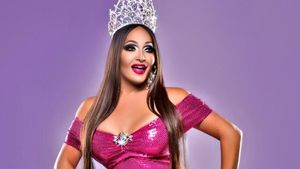




























 A couple kisses in the middle of the street during the Christopher Street Day ; Men seen kissing during the 2023 Pride Barcelona Parade.Yerchak Yauhen/SOPA Images/LightRocket via Getty Images; imone Boccaccio/SOPA Images/LightRocket via Getty Images
A couple kisses in the middle of the street during the Christopher Street Day ; Men seen kissing during the 2023 Pride Barcelona Parade.Yerchak Yauhen/SOPA Images/LightRocket via Getty Images; imone Boccaccio/SOPA Images/LightRocket via Getty Images
